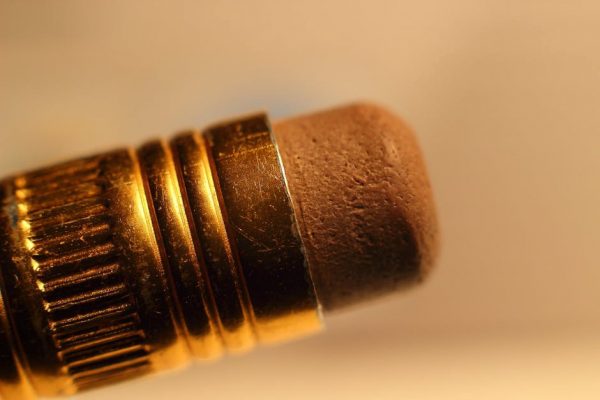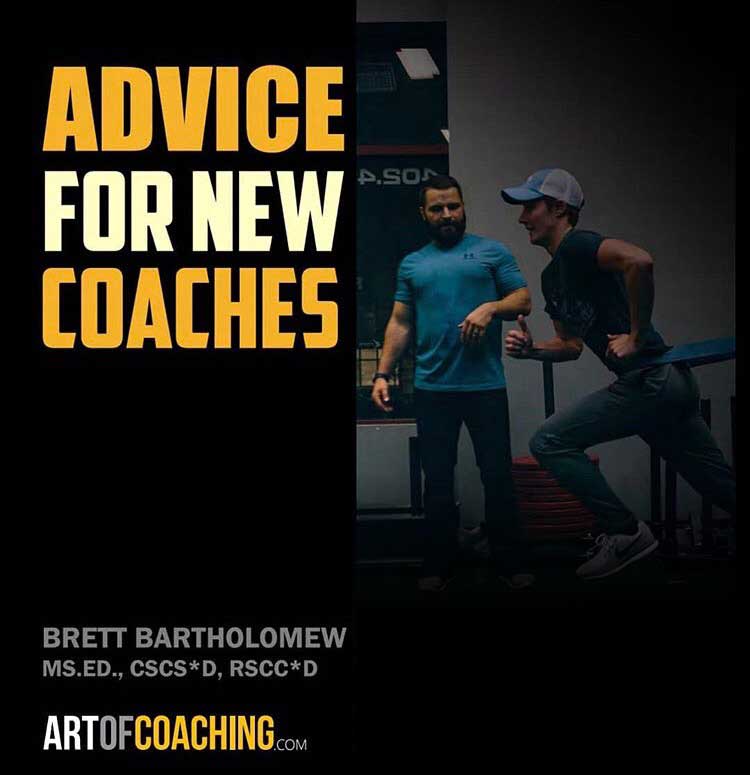In the “age of the expert” in which we currently reside, it is not uncommon to witness some coaches acting as if they have all of the answers and that if a training session goes poorly then the athlete is to blame.
Few things could be further from the truth. Regardless of what the internet would like you to believe, coaching mistakes happen all of the time and are part of the process. And though this seems like common knowledge, the “highlight reel” nature of social media often has a way of making us forget and feel like there is some kind of impossible standard we have to live up to if we want to gain credibility or acceptance into elite coaching circles. The myth is that somewhere out there, the equivalent of a training Elysium exists. A place where every warm-up and rep performed is done in pristine format. Every cue is targeted precisely to each and every individual on the team, and every bit of data is captured and utilized in a seamlessly integrated manner every single day without fail, and with maximum buy-in from everyone on staff.
A place where everything falls into line just as the research promised it would, and the adaptations elicited during training directly contribute to wins and losses without a fraction of ambiguity.
For fellow hip-hop fans, this type of daydreaming may bring back memories of Tupac Shakur’s classic song “Thugz Mansion” in which a romanticized version of heaven is depicted where everything that is wrong with the world is made right- at least, in the image in which he is most familiar.
It’s a nice concept to imagine. It’s an even nicer one to strive for to a point. But it isn’t reality. At least not yet.
Regardless of your pedigree, experience level, or the amount of specialized knowledge that you possess, you are going to make mistakes if you decide to make coaching a lifelong vocation. This is the nature of what it takes to be a craftsmen. It’s the double edged sword that will eventually draw blood and remind you that the tighter you try to grip something, the more likely it is to slip or slice.
No matter musician, physicist or architect, there isn’t a trade in the world where those who eventually made a name for themselves and left a legacy didn’t occasionally play the wrong chord, make a miscalculation, or have to scrap a drawing and start from scratch.
Coaching is no exception, and this holds true regardless of how many books you read, clinics you attend or coaches you observe.
So how do you recover from a mistake once it occurs? Is it possible to salvage a session that was poorly coached, planned or implemented? Of course it is. You just need to learn how to get out of your own way.
Below are a few tips to help.
#1) Control Your Emotions
One of the things that makes us as strength coaches so unique is that we often are our own harshest self-critics because we care so much about what we do. Unlike some jobs where many simply “clock in and clock out” with little to no interaction or true accountability, being on the floor/field and having to solve problems that are right in front of your face in all of their real-time and unpredictable glory brings an added element of focus and intensity to what we do, but this same intensity can also poison the well if left unchecked.
Like the athletes we coach, we tend to have nasty competitive streaks and fragile egos (at times). Let’s chalk it up to many of us being former athletes who were always looking for a competitive edge and way to outwork or outwit our opponents. Calling yourself a coach doesn’t wipe this away. Where virtue becomes vice however is when you let your mistakes eat at you so much to where you begin to lose your cool during the session, or completely shut-down when there is still work to be done. Take the same advice you would give to an athlete who performed a bad rep, put your emotions to the side, and get on with it.
#2) Make a Note
After the session, don’t sulk or try to sweep your mistakes under the rug. Analyze the issue. What caused it? Go through your ABCs and define what you believe to have been the antecedents, behaviors and consequences of the misstep. Then, get busy writing out an action plan as to how you can avoid making the same mistake again. While you’re at it- document this in a manner in which your staff or future apprentices can also look back and learn from the error. Chances are that the issue is more common than you think.
#3) Coach Again As Soon As Possible
I’m serious. Even if it is your neighbor who is hard of hearing or little Janie down the street who looks like she can barely blink and breathe at the same time.
The point is to get more repetitions under your belt. When a quarterback throws an interception, or a fighter takes a loss, all there is to do is get back at it and continue to sharpen the saw. Getting more repetitions under your belt and putting yourself in the exact same situation again goes a long way towards removing both stench and stain of the previous rotten session.
I find this is where many of us go wrong. We make a mistake and immediately start hitting books or research- I’m not saying that these things are “bad,” I’m simply stating that when it comes down to it, the only thing that will truly make you better at coaching, is coaching. If anything, find additional ways to make you face your weaknesses and insecurities so that you get exposed to them more frequently. Varied exposure is the only way to break through sticking points, and is a hallmark step in achieving a better understanding of the complexities inherent to the art of coaching.

#4) Don’t Try and Overcompensate
This tip goes hand in hand with #1 in that when you make a mistake one of the worst things you can do is let your pride make you puff out your chest and try to prove yourself. Coaching is not about putting on a show for your athletes or fellow coaches. We often worry so much about proving our value and expertise to others that we forget that our primary value is to be guides, educators and the level-headed figure in our athletes lives that helps them through their own performance journey.
Trust me, though the mistake you made may have been embarrassing- in the long run, you will be judged by your reaction to it more than anything else.
#5) Take the Blame & Admit Fault
It’s tempting for me to put some famous historical quote here which speaks to the honor in admitting your errors, but in doing that I would just be insulting your intelligence and avoiding sharing my own original thought. So here it is, shit happens. Either immediately after the mistake was made, or after the training session, gather everyone together and simply let them know that you feel as if you let them down and that you will work to get better. Don’t try to pass off blame, or make excuses about the weather, logistics, another coach, the music, parents or any other factor. Look them in the eye, own it and get on with it.
They will respect your more in the long run for doing so.
#6) Don’t Fixate
While it is good for us to analyze our mistakes and failures, like anything in life you need to consider the dosage. Too much introspection can be just as damaging (if not moreso), than too little. Many of us strength coaches are perfectionists, and hold ourselves to a sometimes impossibly high-standard. This makes fertile ground for rabbit-hole digging and can easily lead to you embarking on a self-destructive cycle or anxiety, avoidance and even anger. To help with this, give yourself a time limit to deal with the issue and move on. For many sporting organizations, they have a similar “24-hour” rule which mandates that whether win or lose, they only get to sulk or celebrate for 24-hours before they need to get back at it.
Take a lesson, take a breath, take some time and then get back to the takeover! There are bigger issues in life.
#7) Develop More Tolerance
You’ve run a crappy session, made a mistake, and feel as if things have gotten off course, guess what? You are not unique. It happens to the “big names” as well. Yes, even those lauded as S&C royalty have had instances where they put their foot in their mouth or ran a session they felt embarrassed by. Remembering this comes in handy whenever you visit another facility, team, or coach to do some shadowing and see something you may not agree with, or that lived up to your expectations or that particular coach’s reputation.
Be careful not to judge too quickly and mistake an occurrence for a trend. There have been many instances where an intern or fellow coach has come to me and said they stopped by a certain team or facility and were appalled by what they saw. I usually ask them how long they were there and if they asked the coach they observed for more context. The answer is usually “no”. Why is it that we feel we have the right to judge one another’s body of work based off of a day or week of observation or a chance encounter when dropping in when we are “in the area?”
Be better than that. When in doubt, ask- and also understand that what you saw that day could have just as easily been an “off-day” for that particular coach as well. Our own mistakes teach us a lot of lessons, but most of all they should teach us tolerance.




